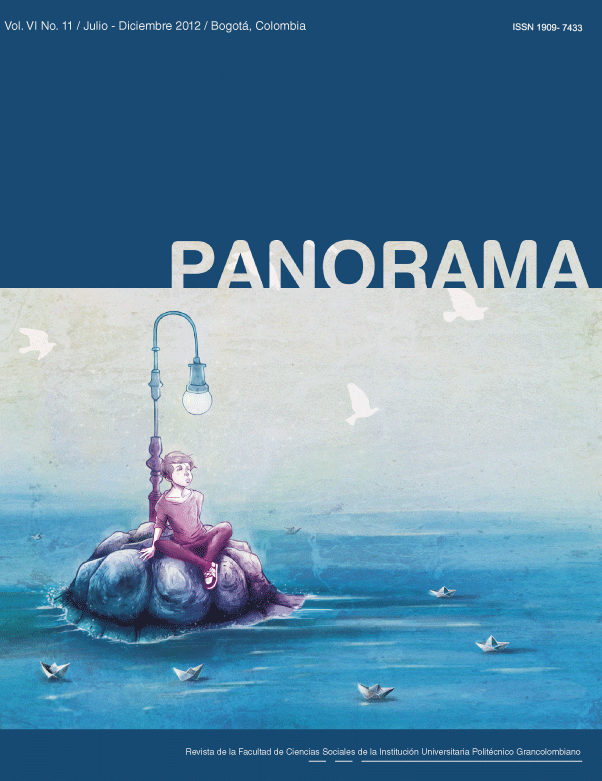Abstract
The development of new technologies has always been part of human history, however technologies of information and communication (ICT) emerge dramatically these days becoming determining and mediator factors of human relations at all scales. This radical transformation poses difficulties and great challenges on the educative process. Starting from a situational framework, this article inquires about the social, demographic and political conditions, for a progressive and sustainable technology and information management in education. This framework describes the important socio-economical and socio-demographic changes in the Bolivian social tissue, which have been obviously affected by the transformations in the rest of Latin America. Focusing on superior education and with the aim to have an impact on the massive access and better use of information therefore contributing to democratization and reducing asymmetry, it can contribute to attain a sustainable economic development in Bolivia. The adoption of collaborative principles, the development of fostructures and the birth of a “free education” based on new technological development are three of the proposals offered by this article to understand the new educational paradigm. This paradigm must create synergy towards Innovation and creation of innovative business models, 2. Self- technological development, better and higher information democratization levels and 3. sustainable development during the transition to Knowledge Society.
References
Banco Mundial (2011). Datos del Banco Mundial. Datos electrónicos, disponibles en http://datos.bancomundial.org/pais/bolivia (revisado 24/04/2012).
Castells, M (2009). Communication power. Oxford: Oxford University Press
CEPAL (2010). Panorama social de América Latina 2009. Informe anual de la División de Desarrollo Social y la División de Estadística y Proyecciones Económicas de la CEPAL. Documento online, disponible en http://www.eclac.org/publicaciones/xml/9/37839/PSE2009-texto-completo.pdf (revisado en 20/06/2012).
CEPAL (2011). CEPALstat, estádisticas de América Latina y el Caribe. Información online, disponible en http://websie.eclac.cl/infest/ajax/cepalstat.asp?carpeta=contenidos (revisado en 20/08/2011).
Chong, A. (Ed.) (2011). Conexiones del desarrollo: Impacto de las nuevas tecnologías de la información. Washington DC: Desarrollo de las Américas - BID.
FAO (2007). La mujer en la agricultura, medio ambiente y la producción rural – Bolivia. Publicación online, disponible en http://www.fao.org/docrep/007/ad927s/ad927s01.htm#fn2 (revisado en 20/08/2011).
Fernández, M. (2008). “Las TIC en la Educación: Algunos elementos para el debate”. Revista digital Question Nº 19, agosto de 2008. Artículo online, disponible en www.perio.unlp.edu.ar/question (revisado en 04/06/2012).
García Zaballos, A. (2011). “Interconexión o acceso, ¿qué va antes?” en TICs para el Desarrollo, un blog del Banco Interamericano de Desarrollo. 20 de Julio de 2011. Online, disponible en http://blogs.iadb.org/tics/2011/07/20/interconexion-o-acceso-que-va-antes/ (revisado 26/06/2012).
Giddens, A. (1999). Runaway World. Londres: Profile Books.
Gobierno Electrónico de Brasil (2004). Guía Libre Referencia de Migración para Software Libre del Gobierno Federal de Brasil. Documento online del Comité Técnico para Implementación de Software Libre. Disponible en: www.governoeletronico.gov.br/anexos/versao-em-espanhol-do-guia-livre (revisado 16/05/2012).
Jenkins, H. (2006). Convergence Culture. New York: New York University Press.
Herrera, Liliana (2005). Contexto Sociopolítico de la Sociedad de la Información. Programa de Maestría en Estudios Políticos. Pontificia Universidad Javeriana. Bogotá, D.C. Facultad de Estudios Políticos y Relaciones Internacionales.
INE (2011). Estadísticas Sociales. Instituto Nacional de Estadística. Datos electrónicos, disponibles en http://www.ine.gob.bo/default.aspx (revisado 22/06/2012).
van Loon, J. (2008). Media Technology. Maidenhead: Open University Press.
Mosco, V. (1996). The Political Economy of Communication. Londres: SAGE
Peres, W. y Hilbert, M. (Eds.) (2009). La Sociedad de la Información en América Latina y el Caribe. Santiago de Chile: Naciones Unidas
van der Ploeg, I. (2003). ‘Biometrics and Privacy A note on the politics of theorizing technology’ in Information, Communication & Society Vol. 6: 1 2003. pp. 85–104 [online] disponible en http://www.informaworld.com/smpp/title~content=t713699183 (24/06/2012).
Rivero, P. (2011a). Coca Política: re/construcción social de la coca como ‘artefacto’ ritual-discursivo-político en Bolivia. Ponencia presentada en el VI Congreso de la Asociación de Estudios Bolivianos – AEB. Sucre. Junio 2011.
Rivero, P. (2011b). ‘Ley de Telecomunicaciones: Alcances, límites, preocupaciones y propuestas a la normativa, con énfasis en Internet’ en Cuadernos de Análisis de la Fundación Milenio. La Paz: Fundación Milenio.
Sunkel, G., Trucco, D., y Möller, S. (2011). Aprender y enseñar con las tecnologías de la información y las comunicaciones en América Latina: potenciales beneficios. Santiago de Chile: División de Desarrollo Social de la CEPAL. Documento online, disponible en: http://www.eclac.cl/publicaciones/xml/9/42669/sps-169-tics-aprendizajes.pdf (revisado en 24/06/12).
Touraine, A. (2000). ¿Podemos vivir juntos? : Iguales y Diferentes. México DF: Fondo de Cultura Económica.
UNESCO (2009). Medición de las Tecnologías de la Información y la Comunicación (TIC) en Educación. Documento Técnico No. 2. Montreal: Instituto de Estadística de la UNESCO. Versión online, disponible en http://unesdoc.unesco.org/images/0018/001883/188309s.pdf (revisado en 22/06/12)
Weinberger, D. (2011). Too big to know. New York : Basic Books.
Ya’u, Y. (2005). ‘Globalisation, ICTs, and the New Imperialism: Perspectives on Africa in the Global Electronic Village.’ Africa Development, Vol. XXX, Nos. 1 & 2, pp. 98–124 [online] disponible en: www.ejisdc.org/ojs2/index.php/ejisdc/article/view/520/254 (revisado en 14/05/12)
Authors who publish with this journal agree to the following terms:
- Authors retain copyright and grant the journal right of first publication with the work simultaneously licensed under a Creative Commons Attribution License that allows others to share the work with an acknowledgement of the work's authorship and initial publication in this journal.
- Authors are able to enter into separate, additional contractual arrangements for the non-exclusive distribution of the journal's published version of the work (e.g., post it to an institutional repository or publish it in a book), with an acknowledgement of its initial publication in this journal.
- Authors are permitted and encouraged to post their work online (e.g., in institutional repositories or on their website) prior to and during the submission process, as it can lead to productive exchanges, as well as earlier and greater citation of published work (See The Effect of Open Access).
Panorama by Institución Universitaria Politécnico Grancolombiano is licensed under a Creative Commons Reconocimiento-NoComercial-SinObraDerivada 4.0 Unported License.






